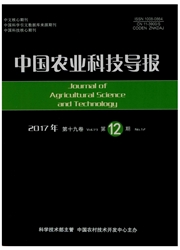

 中文摘要:
中文摘要:
逆境对植物的生长发育产生不利影响,植物在长期适应环境中演化出了相应的机制。蛋白质是基因表达的最终产物,是细胞生命活动的基础,在逆境条件下,许多与逆境相关的蛋白质表达量发生变化。蛋白质组学技术的发展为鉴定和研究逆境响应相关蛋白提供了手段,为阐述逆境应答分子机理提供了重要的依据。本综述根据近年来采用蛋白质组学研究植物应答非生物胁迫(干旱,高盐和低温)的结果,总结并讨论了不同逆境下蛋白表达的组织特异性特点,旨在为理解植物的逆境胁迫响应机制提供更多信息。
 英文摘要:
英文摘要:
Stresses are harmful environmental factors to plant growth and development. In order to adapt to the environment, the plants have evolved corresponding countermeasures. Protein is the final product of gene expression as well as the base of most cellular activities, hence the abundance of many stress related proteins have changed under the abiotic stresses. The development ofproteomics provides a useful tool to identify stress proteins, and it also provides an important basis for the mechanism of stress response. According to recent progresses of proteomics in plants under abiotic stresses (drought, salinity and low temperature), this review summarized and discussed the characteristics of organ-specific protein expression under different abiotic stresses, and provided more information to understand the abiotic stress response in plant.
 同期刊论文项目
同期刊论文项目
 同项目期刊论文
同项目期刊论文
 Analy sis of charge and mass effects on peroxidase expressions and activities in Arabidopsis thalian
Analy sis of charge and mass effects on peroxidase expressions and activities in Arabidopsis thalian A novel nuclear-localized protein with special adenylate kinase properties from Caenorhabditis elega
A novel nuclear-localized protein with special adenylate kinase properties from Caenorhabditis elega 期刊信息
期刊信息
